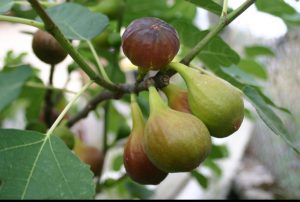 With the rapid change in lifestyles, many of us ignore healthy eating and gorge on food that is both unhealthy and dangerous, we are highly dependent on processed and canned food, which contain chemicals and pesticides, even the fruits and vegetables that we consider “healthy” aren’t as healthy as they seem. One of the changing trends amongst those interested in preserving a healthy lifestyle with ample patience and dedication is organic self-sustenance. It is however not a new concept, it has been adopted by the earliest of men who used to grow their own fruits, vegetables and livestock as a method of self-sustenance. It has a lot of principles involved like use of organic pesticides, use of natural products only and avoiding the use of chemicals. It is a tried and tested method of a healthy lifestyle and it is not as primitive as it sounds with the evolution of technology and availability of hi-tech tools used in farming and agriculture it cuts the time taken and labour required by a huge margin.
With the rapid change in lifestyles, many of us ignore healthy eating and gorge on food that is both unhealthy and dangerous, we are highly dependent on processed and canned food, which contain chemicals and pesticides, even the fruits and vegetables that we consider “healthy” aren’t as healthy as they seem. One of the changing trends amongst those interested in preserving a healthy lifestyle with ample patience and dedication is organic self-sustenance. It is however not a new concept, it has been adopted by the earliest of men who used to grow their own fruits, vegetables and livestock as a method of self-sustenance. It has a lot of principles involved like use of organic pesticides, use of natural products only and avoiding the use of chemicals. It is a tried and tested method of a healthy lifestyle and it is not as primitive as it sounds with the evolution of technology and availability of hi-tech tools used in farming and agriculture it cuts the time taken and labour required by a huge margin.
Not everyone can afford a large garden to be self-sufficient which is why community driven gardens are popping up all over the world where communities involve themselves and divide work of horticulture among themselves, and it is not limited to the farming of crops for self-consumption, organic crops are harvested and marketed to others, as well as floral crops are grown marketing and sale. The techniques used in organic gardening have been used for thousands of years and it involves completely natural processes so that no harmful pesticides or chemicals are involved which make them unhealthy or not safe for a green lifestyle. Mineral supplements, cover crops, manure and compost are preferred to DDT and soil diminishing chemicals. Natural sprays and traps are used to control pests. There are various gardening techniques involved, one of the most commonly used gardening system is a no-till system created by the famous farmer from Japan Masanobu Fukuoka for production of grains at a small scale. Most of the Japanese and Oriental techniques were brought over to the United States in the thirties, from there It became considerably popular throughout the world especially the citizens of the world became more environmentally aware.
So, by now you must be thinking how all of this adds up and why work so hard for something when the cheapest and next best thing is to buy organic food. Well here are some reasons that might get you to reconsider. Organic food grown in a garden can significantly decrease the risk of carcinogens in the body, prevent disorders that are autoimmune and prevent various allergens from affecting you. You do not lose ANY nutrients at all, you pick them straight from your lovely garden, cook it for yourself and your family and enjoy 100% of the nutrients which is IMPOSSIBLE when you buy marketed veggies. There is nothing like the fresh taste of unadulterated vegetables free from pesticides, colouring and preservatives. If these reasons are not enough and you don’t feel it in you to invest time and labour in an organic garden, the next line will definitely bowl you over, you can easily save over a thousand dollars or maybe even two, depending on pro if you grow your own vegetables and fruits, that too we’re talking about the basics like onions, potatoes and tomatoes and a fruit or two. Marketing and sale of your own organic products can get you far and enable decent earnings as a business, people with green fingers are more than happy being a part of the organic lifestyle. Organic farming preserves lifestyles and the ecosystem as well. NO soil erosion, NO pollutants in the water, promotes SAFE AND HEALTHY growth for kids and enables a richer and greener lifestyle.
Here are some major facts about organic farming which may encourage large scale farmers to go organic:
The yield of organic crops is not affected due to use of organic fertilizers and the yield is pretty much the same when synthetic pesticides and fertilizers are used, academic and government institutions have proven this and also Dr. Donella Meadows, a renowned environmental scientist who graduated from Harvard stated so in her article “Our food, our future”.
Organic produce when cultivated in good quality soil is as good as inorganic produce because the soil used in non-organic produce is pesticide infested and eroded soil which hinders the quality. Also, essential vitamins in the produce aren’t lost in organic crops. If you have your own garden you can use tried and tested techniques like crop rotation which helps a lot in preventing soil erosion.
Organic gardening is CHEAP: You can reuse daily products like cartons and containers that pollute the environment and reuse them for use in the garden, you can make your own pesticides and save seeds which can be used in the future. Organic gardening is all about sustainability and preservation.
Anyone can apply organic gardening methods, it requires basic gardening techniques which can be self-taught or picked up from a friend or two. It does NOT take a rocket scientist to figure gardening out, it is one of the most basic things mankind learnt from their primitive days.
However as pleasant as all of this may have sounded nothing is perfect in life and hindrances are always ready to present themselves before us. Cultivation takes a lot of time and that is probably the only disadvantage, and it requires one trait that many lack: PATIENCE. If you can get through the initial hard work your efforts will be repaid very kindly by the environment and your body. You will lead a healthier lifestyle and if organic farming is adopted on a large scale our environment can become much better and greener free from a lot of toxins and carcinogens.
Perhaps this article helped you know organic gardening a little better than you did, or you may feel a bit too lazy, but trust the words that follow, nothing beats the taste of the first bite taken of your home grown vegetables.








